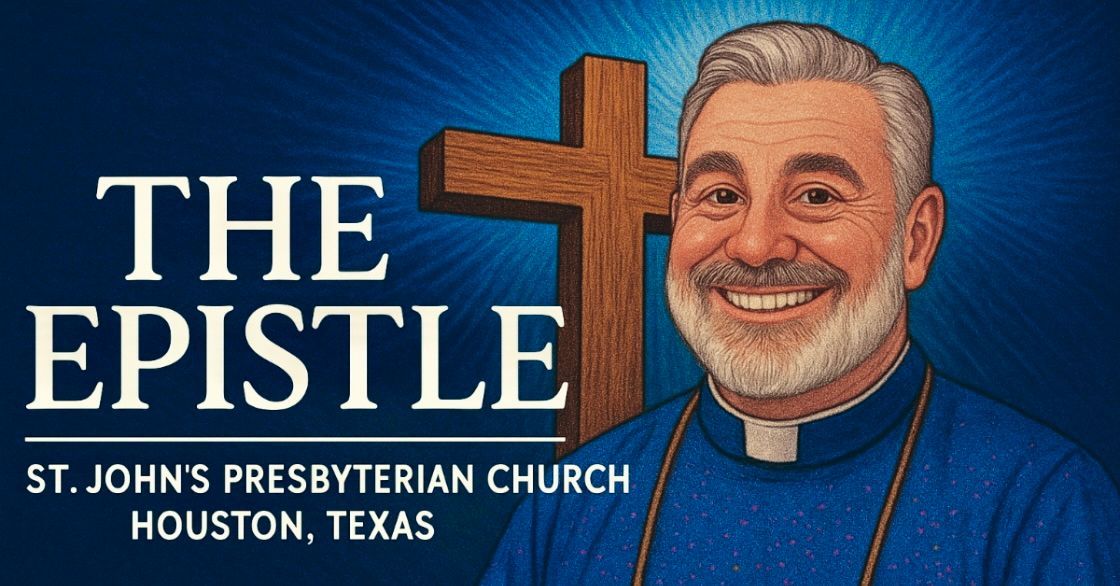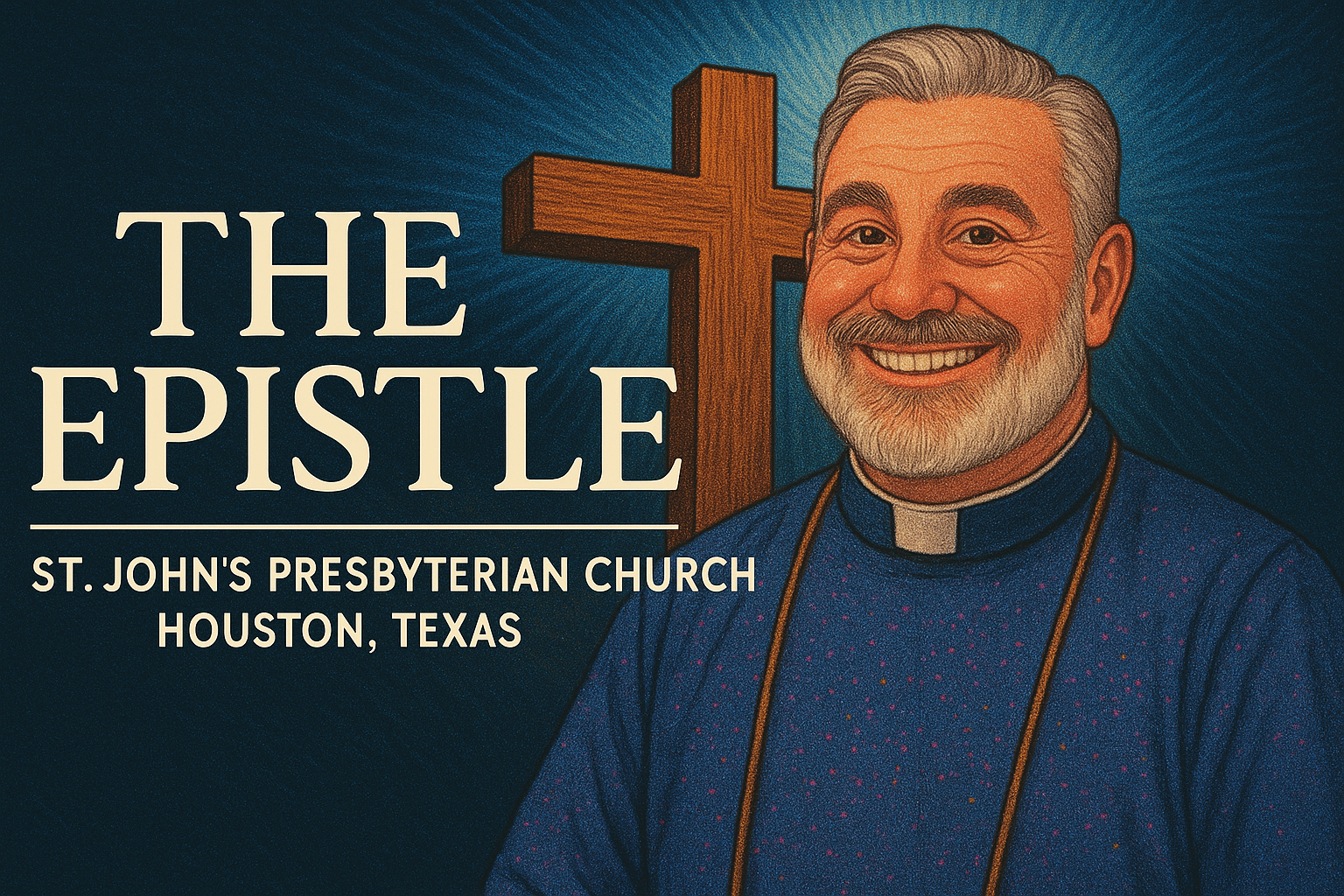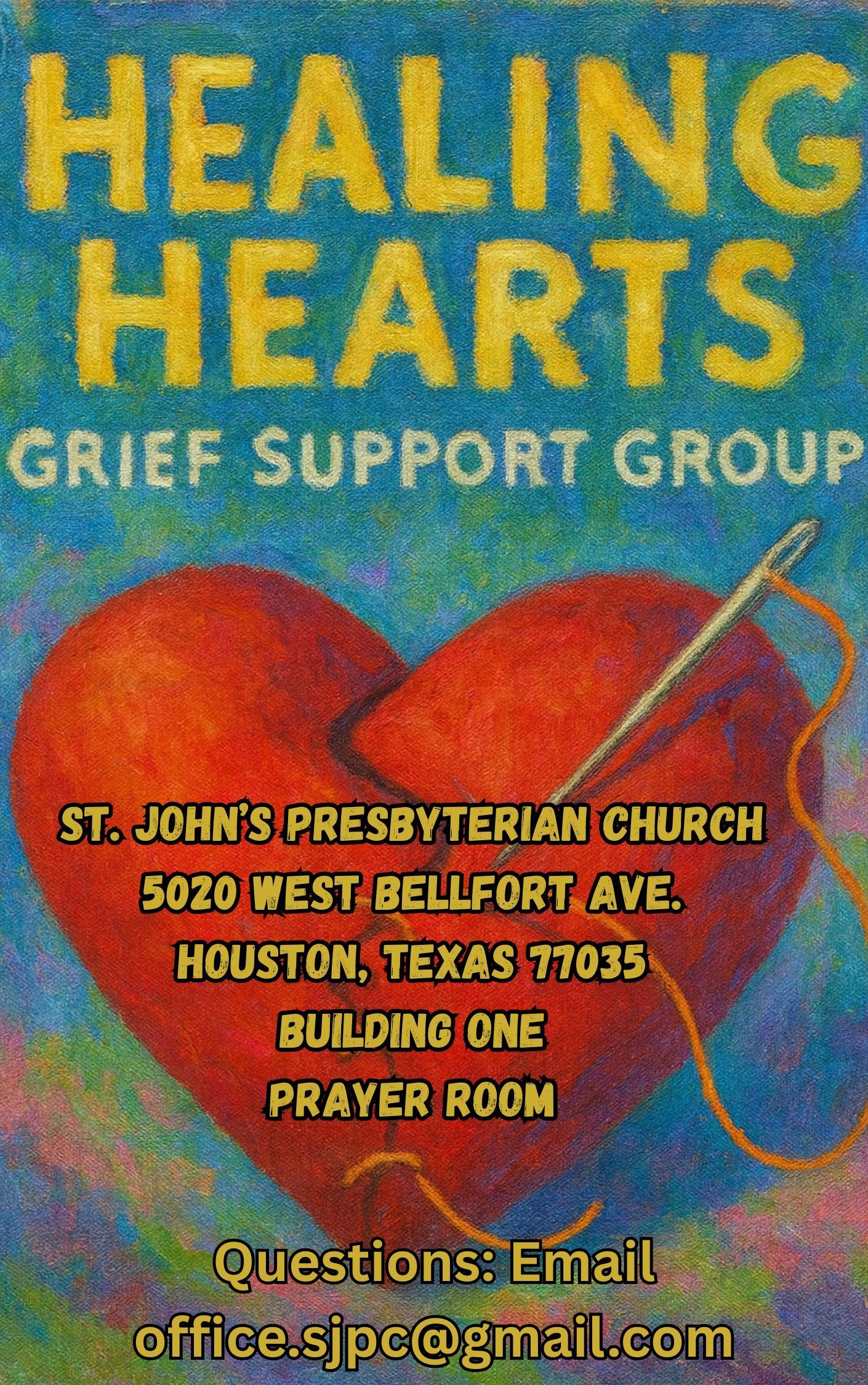Weekly Bible Study Groups in Houston: Grow Your Faith Together
You're looking for a Bible study. Maybe you've been attending church for years but never joined a small group. Maybe you're new to Houston and need to connect with other Christians. Maybe you've been reading Scripture on your own but feel stuck, wanting to go deeper with people who take faith seriously.
When you search for "weekly bible study groups in Houston," you'll find hundreds of options. Church basement meetings. Coffee shop gatherings. Online Zoom groups. Studies focused on specific books. Topical studies on marriage, parenting, finances. Men's groups. Women's groups. Young adult gatherings.
How do you know which one will actually help you grow?
I'm Pastor Jon at St. John's Presbyterian Church, and I've led Bible studies for over two decades. I've seen studies that transformed lives and studies that felt like wasted time. I've watched people grow in faith through consistent, deep engagement with Scripture in community. I've also seen people bounce from study to study, always hoping the next one will finally click.
The difference isn't usually about finding the perfect curriculum or the most charismatic leader. It's about understanding what makes Bible study actually work.
Let me help you think through what you're really looking for in weekly bible study groups in Houston.
What Bible Study Actually Is (and Isn't)
Let's start by clearing up some confusion about what Bible study really means.
Bible study isn't just a church social event with a brief devotional attached. You know the type. Fifteen minutes of announcements, thirty minutes of casual conversation, five minutes reading a passage, ten minutes of "What does this verse mean to you?" followed by people sharing whatever pops into their heads.
That might be pleasant fellowship. It's not Bible study.
Real Bible study engages Scripture seriously. You wrestle with what the text actually says. You ask hard questions. You work to understand the original context and how it connects to the whole biblical story. You apply biblical truth to how you actually live, not just to make yourself feel better but to let God's Word transform you.
Bible study also isn't therapy dressed up with religious language. Some groups use biblical passages as springboards for sharing feelings and problems. Everyone takes turns talking about their week while the actual text gets ignored.
Sharing life together matters deeply. But if Scripture isn't shaping the conversation, you're not really studying the Bible. You're having a support group that happens to open with prayer.
Finally, Bible study isn't entertainment. Some groups want every meeting to be fun, inspiring, uplifting. They avoid difficult passages. They skip anything that might make people uncomfortable. They stay on the surface.
But real spiritual growth often happens precisely when we're uncomfortable. When Scripture challenges our assumptions. When we face our own sin and need for grace. When we discover God is bigger and stranger and more demanding than we imagined.
Good Bible study welcomes those hard moments. It creates space for honest struggle with what Scripture reveals about God and about us.
Why Weekly Matters More Than You Think
Notice the word "weekly" in your search for bible study groups. That's not accidental, and it's not arbitrary.
Meeting weekly creates rhythm. You can't build deep relationships or sustained engagement with Scripture if you only gather once a month. By the time you meet again, everyone's forgotten what you discussed last time. You're always starting over, never building momentum.
Weekly meetings also create accountability. When you know you'll see the same people every single week, you're more likely to actually do the homework. You're more motivated to think about the passage ahead of time. The regularity itself becomes a spiritual discipline.
But here's what I've learned matters most about weekly Bible study: it weaves Scripture into the ongoing fabric of your life.
When you study a passage on Tuesday evening and then face a difficult decision at work on Wednesday, that Scripture is fresh in your mind. You've got actual words from God to draw on, not just vague religious feelings.
When you spend Monday morning preparing for Tuesday night's study, you're saturating your week with biblical thinking. Even if you're busy, even if you can only spend twenty minutes reading the passage, you're shaping your mind around God's Word regularly.
Over time, weekly Bible study changes how you think. You start seeing connections between passages. Biblical themes and principles become familiar friends rather than abstract concepts. God's story becomes the lens through which you understand everything else.
Different Kinds of Bible Studies Serve Different Needs
N
ot all Bible studies work the same way, and that's okay. Different formats serve different purposes in spiritual growth.
Book studies work through biblical books systematically. You read Genesis or Romans or Matthew week by week, chapter by chapter, trying to understand each book as a whole. This approach gives you deep familiarity with Scripture's actual content.
At St. John's, we often use book studies because they prevent us from just picking favorite passages. You've got to deal with the hard parts too. You see how the pieces fit together. You understand each passage in context rather than pulling verses out randomly.
Topical studies focus on specific subjects like prayer, suffering, justice, or marriage. You examine what Scripture says about that topic from multiple passages. This approach helps you think biblically about real-life issues.
The danger with topical studies is proof-texting - collecting verses that support what you already believe while ignoring passages that challenge you. Good topical studies present the full biblical witness honestly, even when it's complicated.
Lectionary studies follow the weekly Scripture readings used in worship. This approach connects your small group study with Sunday morning preaching. You go deeper into the same passages the whole congregation is hearing.
This creates powerful synergy. The pastor introduces themes on Sunday. Your small group wrestles with implications on Tuesday. By the time you hear the next sermon, you're prepared to engage more deeply.
Inductive studies teach you to observe, interpret, and apply Scripture yourself rather than just reading what someone else wrote about it. You learn to ask questions like: What does this passage actually say? What did it mean to the original audience? How does it connect to the rest of Scripture? What does it require from me?
This approach takes more work but builds skills that serve you for a lifetime. You become less dependent on study guides and more confident engaging Scripture directly.
What to Look for in Houston Bible Study Groups
So you're searching for the right Bible study in Houston. What should you actually be looking for?
Look for groups that take Scripture seriously. Watch out for studies where the leader does all the talking and everyone else just listens. Good Bible study involves active participation. People read passages, ask questions, wrestle with difficult texts together.
Also watch out for studies where the text becomes an excuse to share opinions. If you hear phrases like "What I think this verse means" or "This passage speaks to me about" without any attempt to understand what it actually meant to its original audience, that's a red flag.
Look for groups with genuine community. Bible study should build relationships, not just transfer information. The best studies I've seen include time for real conversation about life. People share struggles and joys. They pray for each other specifically. They care about each other beyond the weekly meeting.
But that community should grow from shared commitment to Scripture, not replace it. The Word of God must stay central.
Look for groups that challenge you. If you leave every Bible study feeling comfortable and affirmed, something's probably wrong. Scripture should disturb us sometimes. It should reveal sin we didn't notice. It should challenge our cultural assumptions. It should call us to costly obedience.
A good Bible study creates safe space to be honest about doubts, struggles, and failures. But it doesn't let you stay comfortable in those places. It calls you toward growth and transformation.
Look for groups with skilled leadership. The leader doesn't need to be a seminary graduate or professional pastor. But they should know how to facilitate discussion, keep conversation focused on the text, draw out quiet members, gently redirect people who dominate, and help the group discover biblical truth rather than just sharing their opinions.
Look for groups committed to application. Bible study that doesn't change how you live is just religious trivia. Good studies always ask: What does this Scripture require from us? How does it change how we think, how we relate to others, how we use our money, how we make decisions?
And then they follow up. Did you do what you said you'd do? How did it go? What did you learn?
What Bible Study Looks Like at St. John's Presbyterian
At St. John's, Bible study happens in several settings throughout the week, and each serves different needs in our community.
Sunday morning adult education meets before worship at 9:30 AM. This is typically a smaller group, maybe eight to twelve people, working through a Bible study based on the sermon text for the day. It may also include a theological topic such as discussion of the Second Helvetic Confession or another of our church confesssions. The format includes teaching, discussion, and questions. It's great for people who want depth but can't commit to additional weeknight meetings.
Sunday afternoon
we have a Zoom class for adults. The focus of study is a practical Christian book that helps grow our faith. We discuss the book and whatever we want to share that is happening in our lives. We support one another in prayer and pray for the church.
Midweek small groups meet in homes or at the church on Tuesday or Wednesday evenings. These groups are smaller, usually six to twelve people, which allows for deeper relationship building. We study a passage together, share what's happening in our lives, and pray for each other.
The smaller size creates safety for honest conversation. People ask questions they might not ask in a larger setting. Struggles get shared that need more than surface-level prayer requests.
Women's Spiritual Study Group meets Tuesday afternoons on Zoom. This group has been meeting for years. Older adult women from study Scripture or a spiritual book together, learning from each other's wisdom and experience. The biblical teaching happens alongside genuine life-on-life discipleship.
Men's group gathers twice monthly for study and work projects. We tackle topics like faith in the workplace, leading families spiritually, using money biblically. The format includes some teaching but mostly discussion. Men need space to talk honestly about challenges they face, and Scripture gives us a framework for those hard conversations.
Seasonal studies happen during Advent and Lent. These shorter commitments (one Saturday) allow people to try Bible study without feeling overwhelmed. Many participants end up joining ongoing groups after experiencing what communal Scripture engagement can be.
What ties all these groups together is our commitment to actually studying the Bible. We're not using the Bible as a springboard for discussing politics or complaining about culture or sharing self-help advice. We're working to understand what Scripture says and letting it shape us.
We also connect Bible study to mission. When we study passages about justice, we talk about our work with Braes Interfaith Ministries serving families in crisis. When we read about hospitality, we consider how we're providing housing through Anchor House. When we encounter texts about caring for children, we reflect on our partnership with Presbyterian Children's Homes and Services.
Scripture isn't just information to learn. It's God's Word calling us to participation in what he's doing in the world.
The Hard Part Nobody Tells You About Bible Study
Here's what you need to know before you join a Bible study: it will be inconvenient.
Meeting weekly means blocking out that time every single week. You'll miss some social events. You'll have to say no to other commitments. When you're tired after work, you'll be tempted to skip.
Preparing for Bible study takes time. Reading the passage ahead. Thinking about questions. Maybe doing a little research. In busy weeks, this feels like one more obligation on an already overloaded schedule.
Real Bible study will also mess with your assumptions. You'll discover Scripture says things you didn't expect. You'll face commands that challenge how you've been living. You'll encounter passages that don't fit neatly into your preferred theology.
And growing in biblical community means vulnerability. You can't stay hidden. People will get to know you, including your struggles and failures. You'll have to practice giving and receiving grace with actual people, not just as an abstract concept
.
That's hard. It's easier to keep faith private, comfortable, and safe.
But here's what I've seen happen again and again over twenty years of leading Bible studies: the inconvenience becomes rhythm, the preparation becomes joy, the challenges become growth, and the vulnerability becomes healing.
People who commit to weekly Bible study over years don't just know more about Scripture. They become different people. More patient. More generous. More honest about their own sin. More amazed by grace. More committed to justice. More in love with Jesus.
The Word of God, studied consistently in community, shapes us in ways nothing else can.
Starting Your Search for the Right Group
If you're ready to find a weekly bible study group in Houston, here's my pastoral advice.
Start by visiting churches with strong biblical teaching. If the preaching on Sunday morning lacks depth or biblical grounding, the small groups probably will too. Look for Presbyterian, Reformed, or other churches that take Scripture seriously.
Ask specific questions when you visit. How often do groups meet? What are you studying right now? Who leads the study? What's the typical format? How many people usually attend? Is childcare available if you need it?
Try a few different groups before committing. Most churches welcome visitors to Bible studies. You don't have to be a member. Attend three or four times to get a real sense of the group dynamics and teaching approach.
Pay attention to the questions people ask. Are they wrestling with the text itself, or just using it as a springboard for personal opinions? Do people reference other parts of Scripture to understand the passage? Does the leader help the group interpret responsibly?
Notice the relationships. Do people seem to genuinely care about each other? Does conversation continue before and after the official study time? Do participants pray specifically for one another? Is there follow-up from week to week?
Consider practical factors honestly. Location matters when you're committing to weekly attendance. Meeting time matters for your schedule. Group size matters for your personality. Don't feel guilty about needing a group that works practically for your life.
Give it time. Don't expect to feel instantly connected or to have all your questions answered in the first few weeks. Good Bible study, like all good relationships, develops over time through consistent presence.
An Invitation to Grow Together
At St. John's Presbyterian, we believe Bible study is essential to Christian growth. We don't think you can mature in faith without regular, deep engagement with Scripture in community.
That's why we offer multiple study options throughout the week. We want to make it possible for anyone to find a group that fits their schedule and needs.
But more than that, we've experienced the power of studying God's Word together. We've seen marriages healed through applying biblical wisdom. We've watched people find purpose through understanding God's calling in Scripture. We've seen biblical justice teaching lead to powerful mission work in Houston. We've witnessed the Holy Spirit working through faithful Bible study to transform lives.
If you're looking for weekly bible study groups in Houston that will challenge you to grow, where you'll be known by name and missed when you're absent, where Scripture is taken seriously and applied honestly, we'd love to have you join us.
We meet Sundays at 9:45 a.m. for adult education and 11:00 a.m. for worship. Various small groups meet throughout the week. Come visit and ask about current studies. We'll help you find a group that fits.
No Bible expertise required. Just willingness to show up, read Scripture honestly, and let God's Word reshape your life.
That's what weekly Bible study offers: not just information about God, but transformation by God. Not just learning biblical facts, but being formed into the image of Christ. Not just studying ancient texts, but encountering the living Word who still speaks today.
It's worth blocking out time in your busy schedule. It's worth the inconvenience. It's worth the vulnerability. Because growing in faith together through God's Word is how the church has been making disciples for two thousand years.
And it still works.
St. John's Presbyterian Church
5020 West Bellfort Avenue
Houston, TX 77035
(713) 723-6262
Sunday Worship: 11:00 AM
Adult Education: 9:30 AM
Come join a community where weekly Bible study isn't just another program but the foundation for genuine spiritual growth. You'll find groups that take Scripture seriously, relationships that support your faith journey, and teaching that connects ancient truth with your actual life in Houston.
Exploring St. John’s Further
If you’d like to get a deeper sense of who we are beyond Sunday mornings, several articles open that door. “Bible Study in Houston: Where to Find Scripture Study That Goes Deeper” describes how we gather around Scripture in small groups where honesty matters more than easy answers. For a look at the practices and convictions that shape our worship, “Presbyterian Church Houston: What Makes Our Worship Unique” explains why we worship the way we do and how Presbyterian tradition forms our rhythm of praise and prayer. To see the heart of our mission, “Why St. John’s Presbyterian Stands Out” tells our story—how we’ve chosen compassion over comfort and stood with vulnerable families even when it wasn’t the popular thing to do. Each piece gives another glimpse into life at St. John’s, helping you see what unfolds here between Sundays. Or, you may want to learn more about our beliefs and theology.






